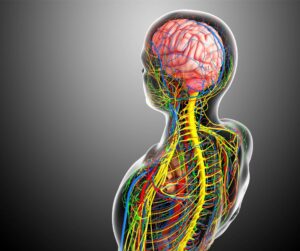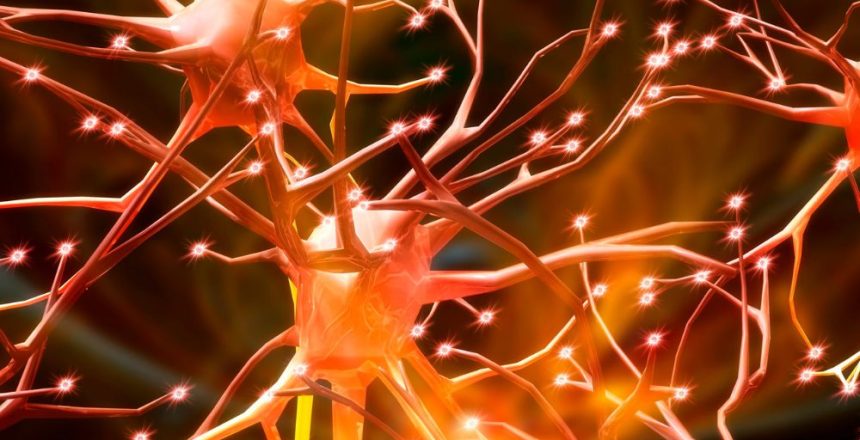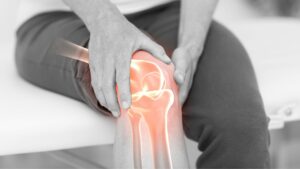We Define Neuropathy and Break Down the Types and Their Symptoms
Are you concerned that you or someone you love may be suffering from neuropathy?
Around 30 million Americans suffer from some form of the condition. Neuropathy is more common in individuals with certain health issues and risk factors, the biggest one being diabetes.
Concerned you may have this condition? Let’s take a look at what it is before exploring types and their symptoms and pointing you to some options for diagnosis and treatment of neuropathy.
What is neuropathy?
Neuropathy is essentially a damaged nerve that doesn’t work properly, causing the typical neuropathy symptoms of tingling, numbness, weakness, or even pain. The condition is most common in the hands and feet but can affect other areas as well.

Read on as we discuss more neuropathy, including what causes neuropathy, the types of neuropathy, and common symptoms to look for.
Definition of Neuropathy
Neuropathy is often referred to as peripheral neuropathy because the peripheral nervous system is where the issue lies. The peripheral nervous system includes all the nerves outside of the brain and spinal cord (aka the central nervous system). The peripheral nervous system (PNS) and the central nervous system (CNS) work closely together to help us perform all our conscious and unconscious functions, from walking to breathing to dreaming.
While the central nervous system is heavily guarded by the skull and vertebrae, the peripheral nervous system is more vulnerable to damage, since its many moving parts are not encased in bones. You can sustain damage to your peripheral nerves from acute trauma, certain conditions and illnesses, and more.
The term neuropathy refers to any damage of the peripheral nervous system and the associated symptoms. If the CNS (your brain and spinal cord) is the command center, the nerves and cells of the PNS are like the highways that bring these signals all over your body.
An easy example —
You’re about to eat a bowl of cereal. A signal originates in your brain that then travels down the spinal cord and into your hand to pick up your spoon. In this instance, the signal moves along the peripheral nervous system, down the nerves from your back, and into your arm, hand, and fingers.
If you have neuropathy, this signaling gets interrupted or interfered with in some way which can cause problems with basic functioning, especially in the hands and feet.
With peripheral neuropathy, the signals get disrupted in three ways:
- The signals that normally get sent are lost (like a broken cable)
- Errors alter or misconstrue the signals
- Excessive or inappropriate signals muddle the main message
Basically, a problem on the superhighway of the nervous system due to some type of damage makes the brain’s signals unable to reach body parts the way they should.
Neuropathy is very common among Americans and is typically a non-threatening condition, though serious complications can occur. One or more peripheral nerves may be affected, causing the typical tingling or numbing sensation in the extremities. At worst, left untreated the condition can become life-threatening if the autonomic nerve controlling the heart or lungs is damaged or blood flow is impacted seriously enough over a long enough period of time to result in amputation.
Types of Neuropathy
The different types of neuropathy fall into four different categories:
1. Peripheral Neuropathy
The most commonly diagnosed of the bunch, about 33-50% of diabetics develop this type of neuropathy. Peripheral neuropathy typically affects the feet and hands. A tingling or numbing sensation may occur at the extremities and travel upward along the legs and arms.
2. Autonomic Neuropathy
Autonomic neuropathy involves damage to those nerves that control functions you don’t consciously think about. Autonomic nerves regulate and control all your internal organs, so if you have this type of neuropathy, you may experience more serious complications related to blood pressure, heart rate, the digestive system, and more.
3. Focal Neuropathy
This type of neuropathy usually targets single nerves in the head, hand, leg, and torso. One of the most common types of focal neuropathy is carpal tunnel syndrome. With carpal tunnel syndrome, the median nerve which runs down the forearm and into the wrist becomes damaged, causing acute pain that can make it difficult to write or type.
4. Proximal Neuropathy
Proximal neuropathy is the rarest of the neuropathy types. The condition is characterized by severe nerve damage in the thigh, hip, or buttocks that usually affects just one side of the body. Proximal neuropathy is more common in people over 50 and those with type 2 diabetes.
A Word on Diabetic Neuropathy
As we previously mentioned, the most common cause of neuropathy is diabetes. If your neuropathy is caused by the condition, then you have diabetic neuropathy. Diabetic neuropathy can include any of the above categories because of damage to the peripheral nervous system from chronic dietary issues with sugar and fats.
What causes neuropathy?
Neuropathy doesn’t arise from a singular condition. Rather, there are a few neuropathy causes that can trigger the problems and symptoms like weakness and numbness in different areas of the body. The following root issues are known to cause nerve damage and consequently, one or more neuropathies:
Diabetes
Diabetes is the single biggest cause and risk factor for neuropathy and can in many cases produce severe nerve damage. That’s because high blood sugar levels and high levels of fats in the blood wreak havoc on the nerves over time. Problems from neuropathy caused by diabetes can range from tingling in the extremities to more serious issues that can affect organs like the bladder and even the heart. Between 60 and 70% of diabetics develop neuropathy at some point in their life, so if you have diabetes, you are definitely at risk.

Physical Injury
Car accidents, sports injuries, falls, and other physical trauma can compress and crush nerves, causing neuropathy. Smaller, less severe injuries can also trigger neuropathy over time, like arthritis and other inflammatory conditions that put pressure on the nerves. In a nutshell, any time there is compression or damage to a peripheral nerve from trauma, you may experience the symptoms of neuropathy. Remember that unlike the brain, the peripheral nervous system is not protected by bone and therefore more vulnerable to damage.
AutoImmune Disorders and Other Health Conditions
Autoimmune disorders and chronic infections such as rheumatoid arthritis, lupus, HIV, the herpes virus, and more can cause damage to the nerves and result in neuropathy. If you have liver problems or disorders of the kidneys, these can also lead to neuropathies. Tumors can physically damage the nerves of the PNS by compressing or even breaking them, so depending on where they are, they can be a big risk factor.

Other lifestyle factors and health issues that can cause or worsen neuropathy symptoms include:
- Alcoholism
- Vascular disorders
- Medications
- Nutritional imbalance
- Hormonal imbalance
- Poisons
- Unknown
Not all cases of neuropathy can be properly explained by an underlying cause. Undoubtedly, there is one in each case, but due to the myriad possible systemic, lifestyle, or acute trauma factors, sometimes a definitive root cause is difficult to pin down.
Sometimes, the symptoms are treated either with natural remedies or under medical supervision without knowing the root issue.
Neuropathy Symptoms
Symptoms of neuropathy will depend largely on what nerves and cells in the PNS have been negatively impacted. Neuropathy can affect:
- Motor nerves are responsible for muscle movement.
- Sensory nerves that interpret sensations like pain, temperature, etc.
- Autonomic nerves don’t require conscious thought and regulate heart rate and blood pressure.
Common neuropathy symptoms include:
- Numbness or tingling in hands and feet
- Numbness, tingling, or weakness that spreads from the extremities upward into the arms and legs
- Sensitivity to touch (this can sometimes manifest itself to the extreme, where something simple like putting on socks can be painful)
- Muscle weakness
- Pain
- Loss of coordination
- Falling
- Paralysis
- The sensation of wearing gloves or socks
If you have neuropathy that affects the autonomic nerves, you may also experience:
- Heat intolerance
- Digestive issues
- Bladder problems
- Sweating issues (too much or not enough)
- Dizziness or feeling light-headed from blood pressure changes
If you have neuropathy symptoms — particularly if they are severe or you are at-risk due to diabetes or trauma — call your doctor to get checked out and put your mind at ease. The sooner you receive a neuropathic diagnosis and treatment, the sooner you can prevent further damage to your nervous system.
The Good News?
The good news is that the more common forms of neuropathy, especially peripheral neuropathy, are easily treated and can sometimes even subside on their own.
Get in touch with your doctor if you think you might be at risk.
Neuropathy Treatment Videos
Next Steps
If you’re in the Austin or Bee Caves area, learn more about our chiropractic treatment for neuropathy.
And stay tuned for our next blog on natural remedies for neuropathy!






